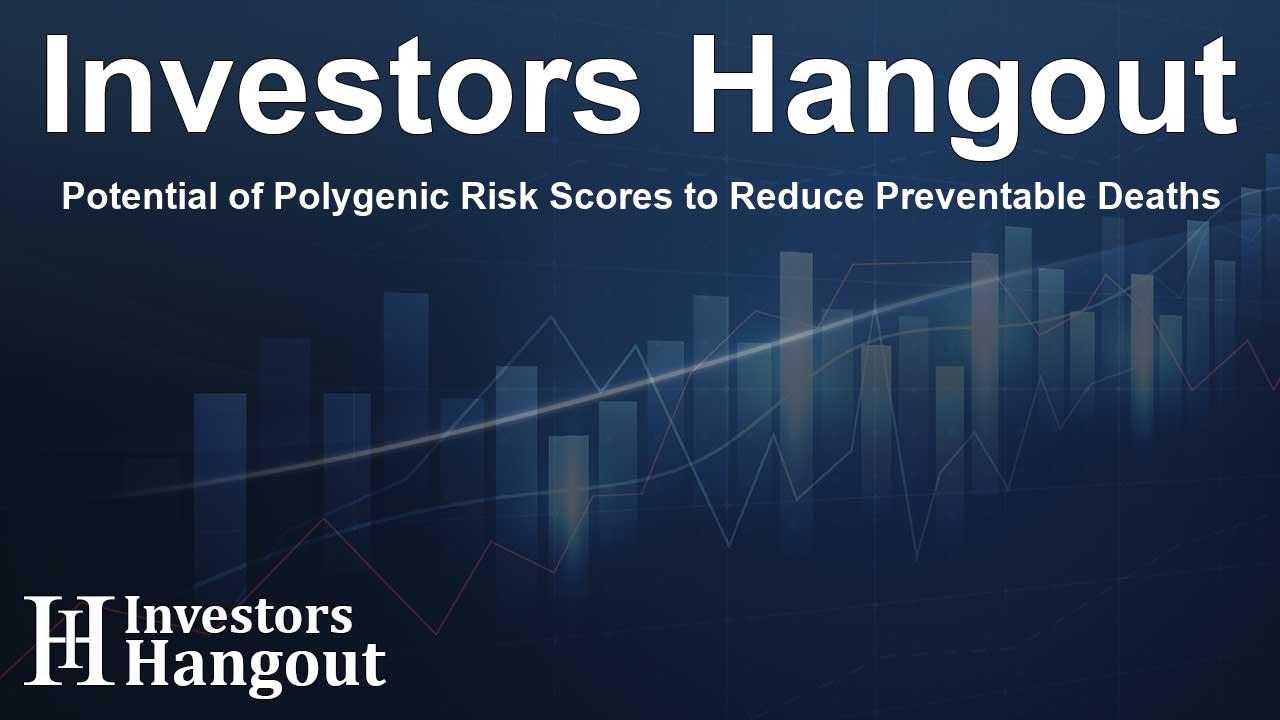Potential of Polygenic Risk Scores to Reduce Preventable Deaths

The Role of Polygenic Risk Scores in Public Health
Recent research demonstrates a groundbreaking approach to healthcare using polygenic risk score (PRS) screening, which has the potential to prevent a significant portion of premature deaths caused by chronic diseases. The findings indicate that nearly one in five deaths in the US is preventable, highlighting the urgency of innovative screening methods that can save lives.
Insights from the Latest Study
A comprehensive study showcased that employing PRS could lead to a remarkable reduction of 24.5% in premature fatalities by pinpointing individuals at heightened risk for prevalent chronic ailments. This research aims to transform the landscape of public healthcare by allowing early interventions for those more susceptible to these diseases.
Understanding Polygenic Risk Scores
The essence of PRS lies in its ability to analyze a single biological sample to assess genetic risks associated with nine significant diseases. Through this innovative approach, individuals identified as very high and high risk could benefit from screenings much earlier than current standard practices permit.
Implications of Early Screening
With the application of PRS, it's noted that very high-risk individuals could start screenings an average of 12.4 years sooner than traditional guidelines. Similarly, individuals deemed high risk could begin screenings 9.5 years earlier. Conversely, those with reduced risk might be able to delay screenings by 17.7 years, thereby optimizing healthcare resources and focusing attention on the individuals who need it most.
Collaboration with Leading Medical Institutions
This dynamic research was a joint effort between a pioneering healthcare firm and prestigious medical institutions, illustrating how collaboration can pave the way for future advancements in genetic healthcare. Such partnerships underscore the importance of using large-scale genetic data to enhance patient outcomes.
The Cost of Chronic Diseases
Chronic diseases represent a staggering 90% of the annual healthcare expenditure in the US, amounting to over $4.5 trillion. Reducing the prevalence of these diseases through early detection and intervention can have profound implications not only for individual health but also for the economy at large.
Community Impact and Future Directions
The movement toward implementing PRS in healthcare settings could lead to better quality of life for millions, extending the time individuals can spend with their families. By prioritizing the identification of individuals at risk, we can anticipate healthcare needs before they become critical.
Genomics and Future Health Initiatives
In alignment with this mission, the pioneering company has already initiated trials within existing health services to incorporate genetic risk assessments into routine checks. Such integration signifies a promising future where predictive healthcare plays a pivotal role in the fight against diseases.
Frequently Asked Questions
What are Polygenic Risk Scores?
Polygenic Risk Scores are a calculation based on genetic information that predicts an individual's likelihood of developing certain diseases.
How can PRS affect public health?
PRS can enhance public health strategies by identifying high-risk individuals sooner, allowing for earlier screenings and interventions.
What diseases can be screened using PRS?
PRS can be applied to several diseases, including breast cancer, prostate cancer, and cardiovascular diseases.
Why is early screening important?
Early screening allows for timely interventions that can significantly reduce the risk of premature deaths from chronic diseases.
How does this research impact future healthcare approaches?
This research could lead to a paradigm shift in how healthcare screens and manages chronic diseases, potentially saving thousands of lives each year.
About The Author
Contact Olivia Taylor privately here. Or send an email with ATTN: Olivia Taylor as the subject to contact@investorshangout.com.
About Investors Hangout
Investors Hangout is a leading online stock forum for financial discussion and learning, offering a wide range of free tools and resources. It draws in traders of all levels, who exchange market knowledge, investigate trading tactics, and keep an eye on industry developments in real time. Featuring financial articles, stock message boards, quotes, charts, company profiles, and live news updates. Through cooperative learning and a wealth of informational resources, it helps users from novices creating their first portfolios to experts honing their techniques. Join Investors Hangout today: https://investorshangout.com/
The content of this article is based on factual, publicly available information and does not represent legal, financial, or investment advice. Investors Hangout does not offer financial advice, and the author is not a licensed financial advisor. Consult a qualified advisor before making any financial or investment decisions based on this article. This article should not be considered advice to purchase, sell, or hold any securities or other investments. If any of the material provided here is inaccurate, please contact us for corrections.
